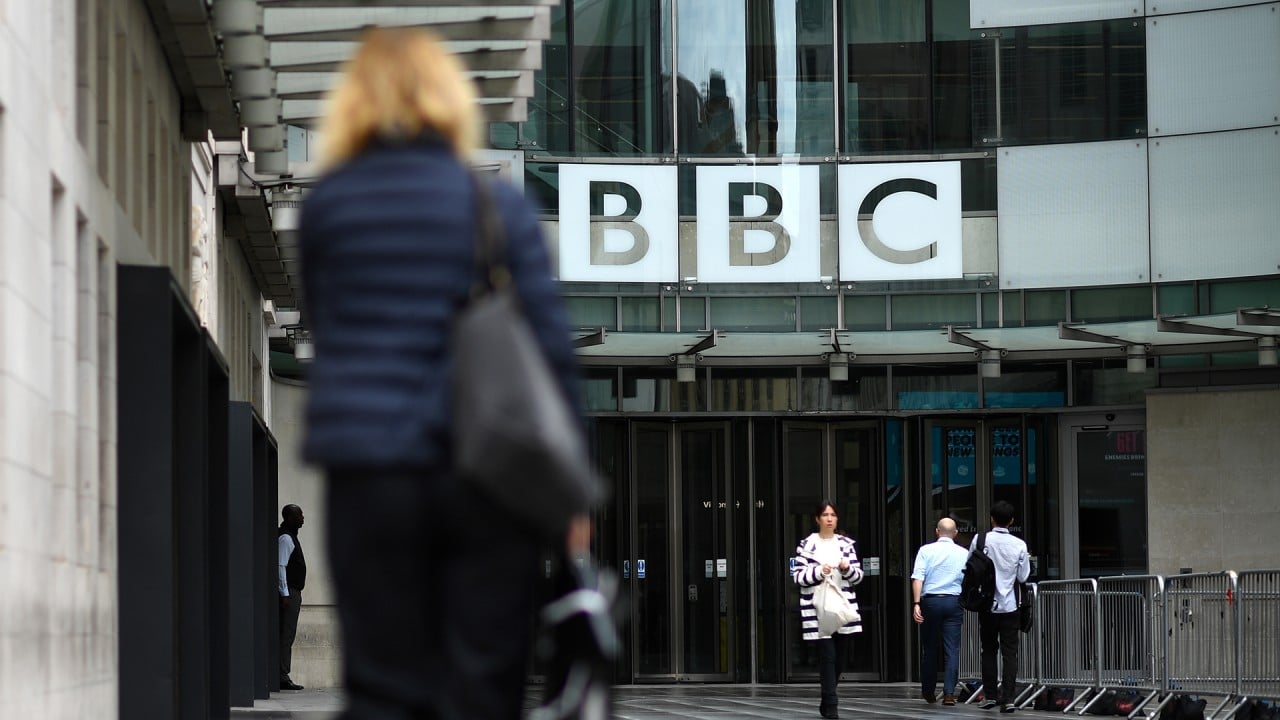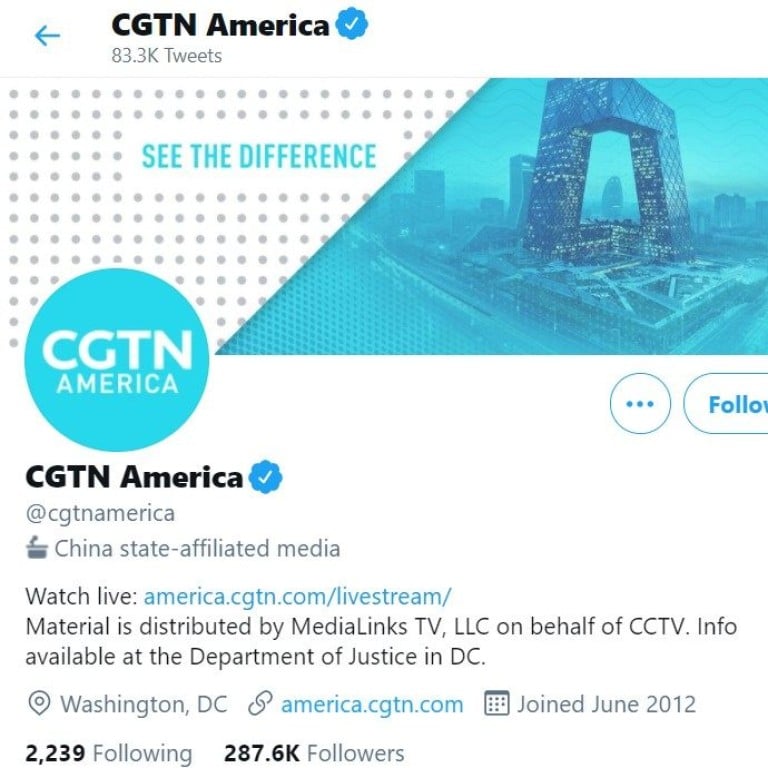
Why are Twitter ‘China state media’ labels only applied to Chinese employees?
- Beijing-sponsored outlets employ a number of non-Chinese workers in prominent posts, yet none are labelled by Twitter
- Concerns of fairness and safety come amid rising incidents of violence and harassment in the US against Asians and Asian-Americans
Last August, Twitter, the social media giant, announced a new policy: “state-affiliated media” labels would be attached to the accounts of government-controlled news outlets and some of their senior employees in China, as well as in Russia and a handful of other countries.
In the months since, Twitter has expanded the policy’s reach, increasing the number of countries affected and adding more individual accounts to the list, including those of reporters.
But one group of users seems to have been spared: non-Chinese news workers employed by Chinese state media outlets, the ranks of which include senior editors, news anchors, foreign correspondents and commentators.
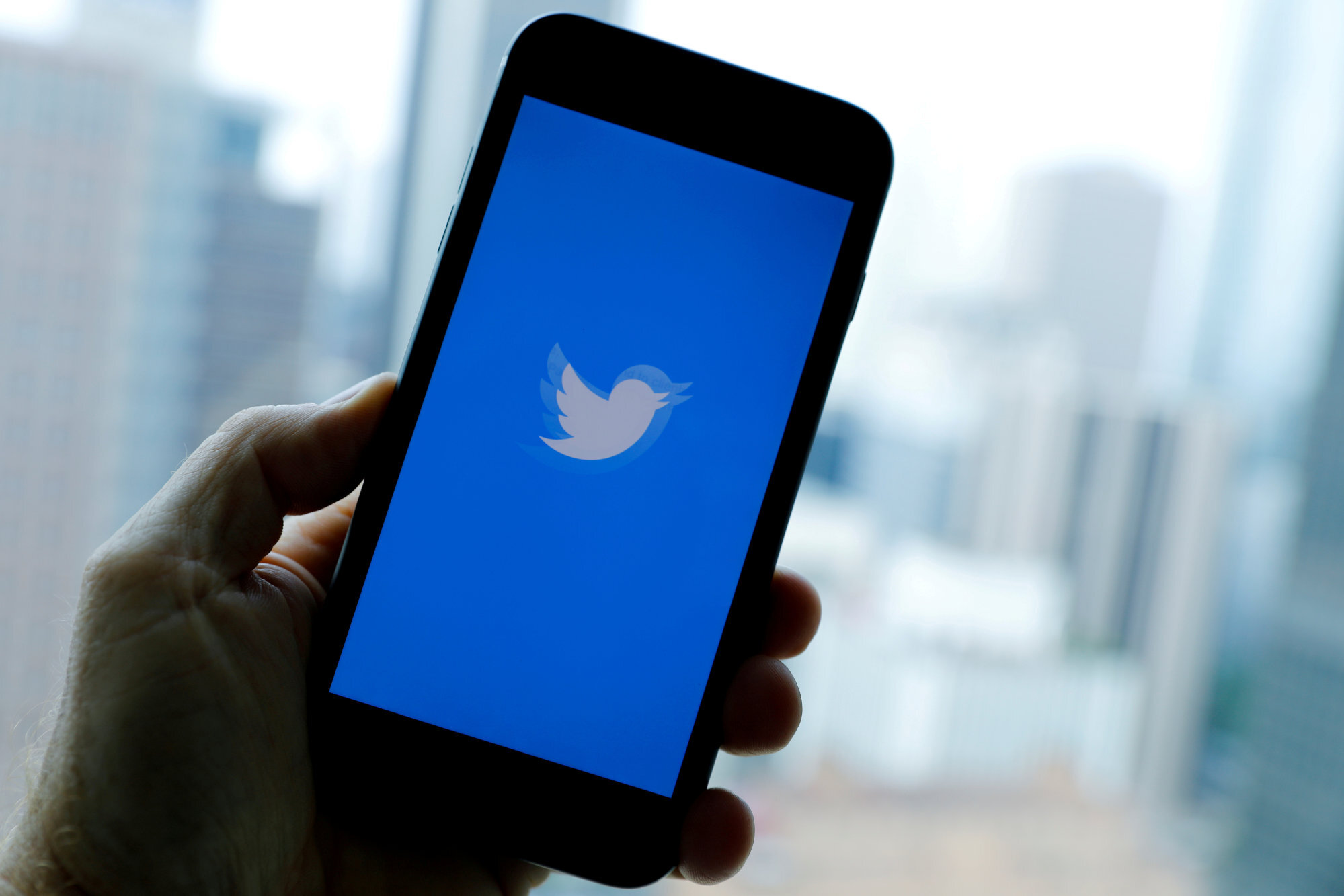
At best, observers say, it’s an imbalance that reflects the challenges social media companies face in gathering enough information to apply such labels consistently.
At worst, it risks fuelling racist tropes that paint Chinese journalists – and only Chinese journalists – as spokespeople for Beijing. Such concerns come amid spiking violence and harassment in the US of Asians and Asian-Americans, both online and off.
Twitter, which denies that nationality plays a role in its determinations, declined to provide a list of all accounts flagged as “China state-affiliated media”. The South China Morning Post identified at least 11 personal accounts carrying the label – in addition to dozens of organisational accounts.
Twitter begins labelling ‘state-affiliated media’, including Chinese outlets
Twitter said it selects individuals based on their seniority or prominence. But beside the editors-in-chief, bureau chiefs and TV anchors, the labels have also been applied to several reporters.
One of those reporters, Beijing-based Wang Zichen of the Xinhua News Agency, has playfully embraced the moniker, displaying it prominently on the landing page of a newsletter he produces apart from his job at Xinhua. Wang declined to comment for this story.
Meanwhile, foreigners spared the labels include the China Global Television Network (CGTN) Washington correspondent, Nathan King, and a number of news anchors at the channel; news editors at outlets including the Xinhua News Agency; and an American commentator beloved by China’s leaders.
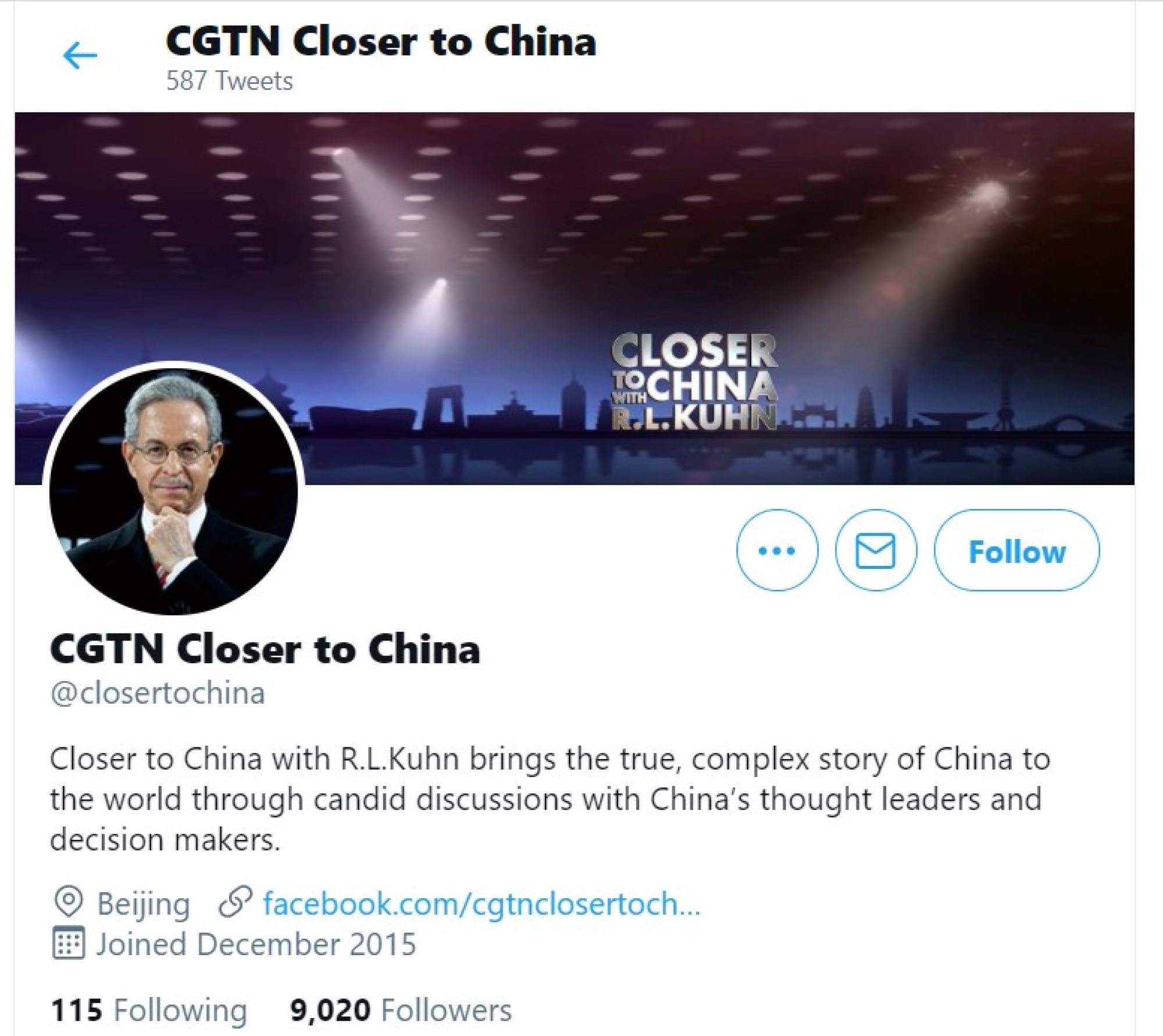
Yet no state-affiliated label appears on his show’s Twitter account, which features posts proclaiming Taiwan to be a part of China and accusing Western countries of spreading lies about Xinjiang.
In a response to this article, Kuhn said that the account was managed by CGTN and that he had never authored or approved any of its Tweets. “I was at most vaguely aware of its existence,” he said.
Kuhn would now be requiring that the account associated with his name no longer publish anything that had not been written or approved by him, he added.
“If [Twitter is] only tagging Chinese citizens, that sounds to me very, very bizarre,” said Jin Ding, a Washington-based media professional who co-founded Chinese Storytellers, a digital platform showcasing the work of Chinese journalists.
Twitter removes 23,750 China-linked accounts for spreading disinformation
Just labelling Chinese news workers glosses over the fact that, even inside the state media apparatus, Chinese journalists are often “fighting within the system”, Ding argued, adding that some turn to platforms like Twitter to share opinions that may differ from the Communist Party line.
“I don’t know how that’s being played out psychologically for those journalists who are being tagged, when they’re waking up [to realise]: ‘I’ve been tagged as state-affiliated media while my white colleagues are not,’” Ding said. “I don’t see that that’s fair.”
Beyond the labels, which appear both on the profile page and beside each tweet by the targeted user, Twitter’s designations also reduce the accounts’ visibility. “State-affiliated” accounts do not appear in recommendations to other users, and their posts are not promoted on other parts of the site, such as topic feeds.
The labelling came amid criticism that major social media companies – others include Facebook and YouTube – had failed to contain the spread of disinformation and misinformation on their platforms.
Some of those critiques have come from America’s political right, which has homed in on Twitter for letting officials from countries like China and Iran use the platform even though their governments block their citizens from access to the site.
Twitter, YouTube and Facebook have all introduced labels identifying accounts of state-affiliated or state-funded news organisations. Only Twitter, though, has affixed the labels to personal accounts as well.
The policy angered Beijing, with the Chinese Communist Party’s mouthpiece newspaper, People’s Daily, decrying Twitter’s move as “discriminatory” when the policy was first announced.
Hu Xijin, editor-in-chief of the nationalist, state-run tabloid Global Times, was among the first individuals Twitter labelled. Growth in his follower count has slowed dramatically, while retweets of his posts and comments responding to them have approximately halved, he said.
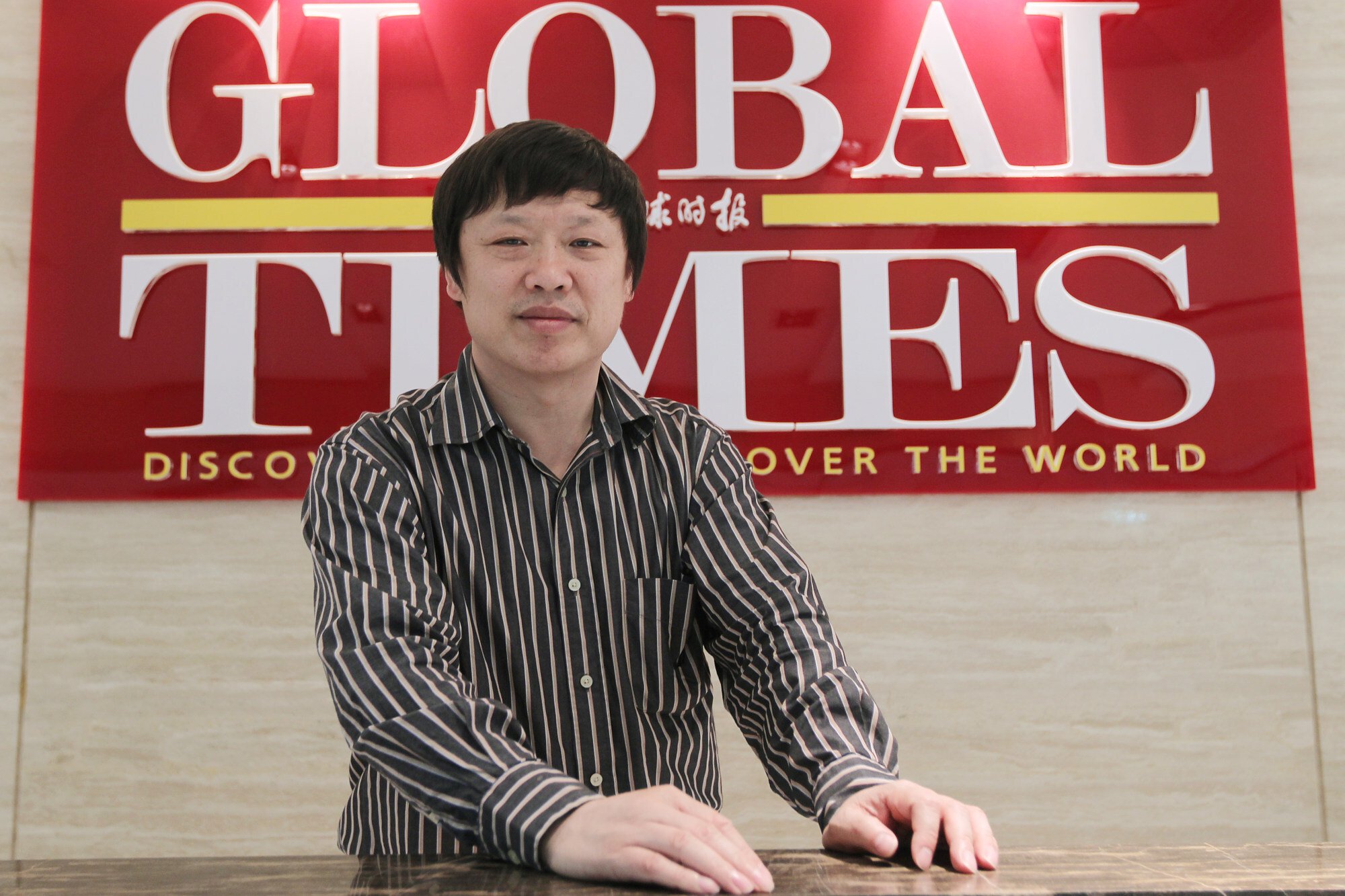
In an interview, Hu, who is based in Beijing, conceded that media outlets in China “are all under the leadership of the CCP”, but argued that Twitter’s labelling oversimplified the degrees to which different outlets represent the official government position.
“I have the same label as People’s Daily, but there’s a big difference,” said Hu, one of few prominent figures in China – mostly officials – who can freely use Twitter, which is otherwise blocked on the mainland.
“Firstly, People’s Daily is an organisation, and I’m an individual,” he said of the CCP’s flagship newspaper, which runs the Global Times. “Secondly … it carries much more official weight than me.”
As for the fact that Twitter had so far only applied labels to Chinese employees of Chinese state media outlets, Hu shrugged: “That’s the way they see things. I think we’re used to it now.”
To be sure, China is not the only country whose media outlets are subject to Twitter’s labels. After first applying the policy to outlets in the five permanent members of the UN Security Council (the US, Britain, France, China and Russia), Twitter in February expanded the designations to 16 other countries.
Still, they seem to have focused on China and Russia, since Twitter regards outlets like the BBC in Britain and Voice of America in the US as sufficiently insulated from government interference.
But at a time when rights groups in the US are documenting spikes in attacks against Chinese and east Asians in both digital and physical spaces, Twitter’s policy as it relates to China is attracting greater scrutiny.
Ding worried that labelling Chinese reporters could further fuel anti-Asian and anti-Chinese sentiment that are already prevalent online, particularly given that “tension between the US and China is already very strong” and is playing “a huge role in anti-Asian violence”.
There’s an assumption that a Chinese journalist “can never be unbiased”, said Ding, citing harassment she said members of Chinese Storytellers face on a “daily basis”, including accusations that they are “CCP mouthpieces”.
Several vitriolic tweets in recent weeks, some profane, specifically referred to the labels. “My cyberbullying instincts kick in whenever I see the ‘China state-affiliated media’ tag,” one Twitter user posted in March.
In an emailed response to questions, a Twitter representative stressed that “nationality does not impact our labelling,” but did not answer questions about why the state-affiliated label had been applied to some Chinese journalists yet not to their foreign colleagues in similar – or even more prominent – positions.
Twitter temporarily suspends two Chinese diplomatic accounts
Nor did the representative address whether the company was concerned that its labelling of individual reporters could fuel racial stereotypes.
The company was taking public feedback as it developed its policies, the representative said, adding: “Just because an account isn’t labelled now doesn’t mean we won’t in the future.”
Inconsistencies in the application of Twitter’s labelling policies were inevitable since social media companies are navigating uncharted waters, Alex Howard, a digital governance expert, said.
“We’re still in the very, very early days of how the norms and the rules and the laws [are] all getting worked out,” said Howard, who directs the Digital Democracy Project at the Demand Progress Educational Fund.

Howard called Twitter a “canary in the troll mine” – and said that the company’s approach lacked adequate transparency.
In particular, Howard criticised the company’s refusal to publish a list of those it labelled and explain why each had been selected: “Do it right or don’t do it at all. If you’re going to do this stuff and take this position that that’s helpful context, then be open and transparent about how you’re making the determination … and be accountable for it.”
Twitter has not released data regarding the effects of the labelling, but an analysis by the China Media Project, a research programme affiliated with the University of Hong Kong, this year found that state-run Chinese outlets saw significant drops in engagement in the weeks following their designation.
The accounts of CGTN, Xinhua and People’s Daily all experienced decreases of more than 20 per cent in likes and shares per tweet, according to the study.
To Hu, the decrease in engagement with his personal account signalled the shrinking of a “precious” window of communication between the US and China, at a time of acute tensions in the nations’ relationship.
“I wish the two countries could strengthen their mutual understanding,” he said. “Although sometimes [interactions on Twitter] take the form of clashes, insults and blaming, those are still ways to understand each other.”
Yet while decrying the labels, Hu appeared to acknowledge that people in China face a bigger obstacle when it comes to gaining access to Twitter, given the country’s “Great Firewall”.
Asked if he hoped more of his compatriots could join him on Twitter, he replied: “I would like that. But I don’t know if they’ll be able to.”



